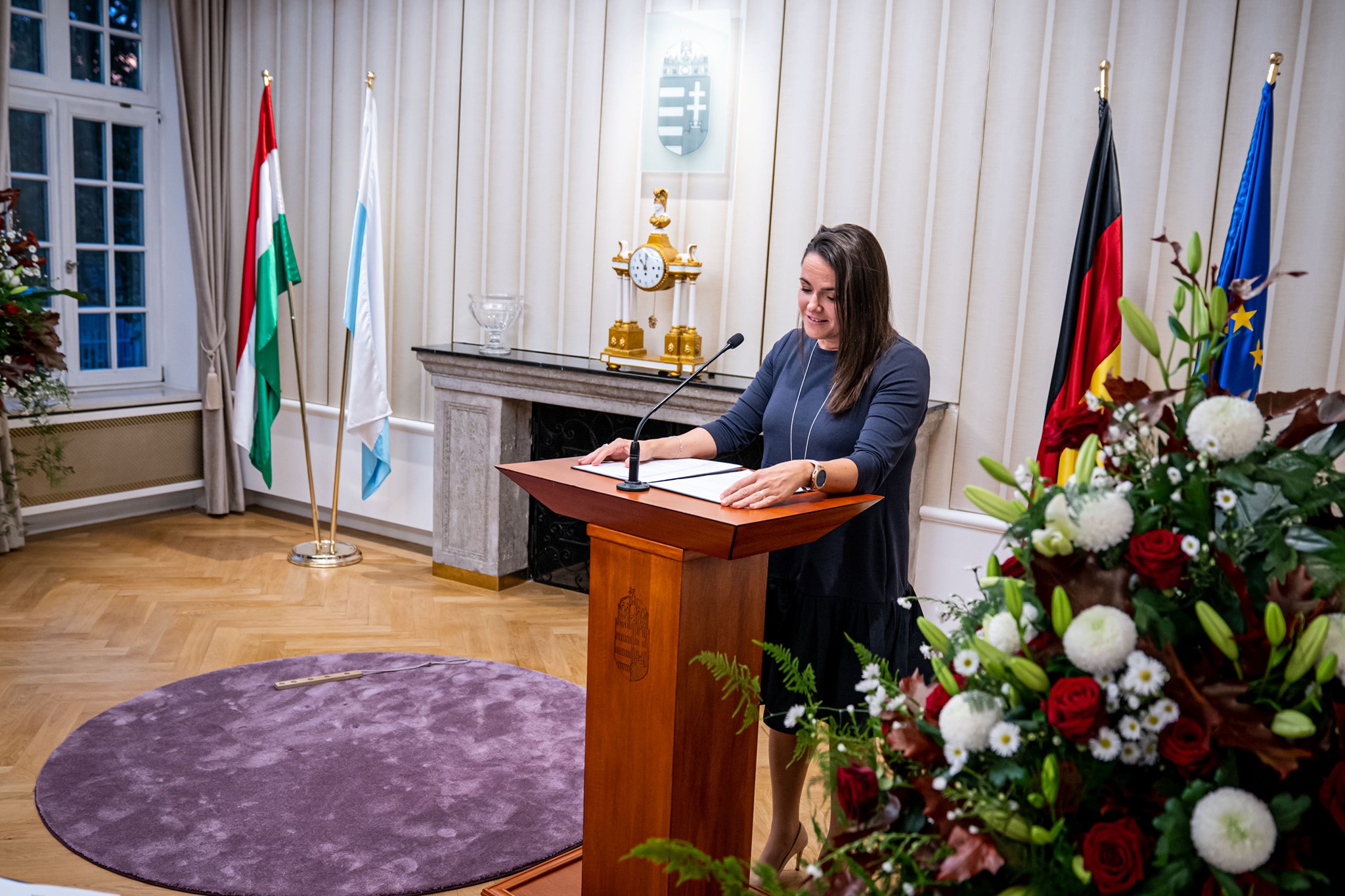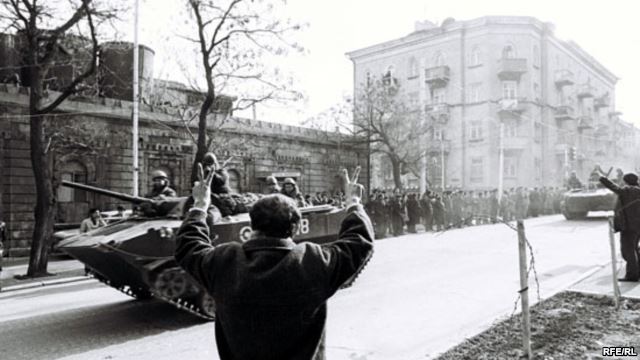Minister in Munich: Hungary revolution was ‘fatal wound’ to West’s illusions about communism

Hungary’s anti-Soviet uprising of 1956 was a European cause and a “fatal wound to the West’s illusions about communism”, Katalin Novák, the minister for family affairs, told a commemoration of the outbreak of the revolution in Munich on Wednesday.
In her speech at the event held at the Hungarian consulate general, Novák said the Hungarian revolution had “moved the entire world”, shining a light on the realities of Soviet oppression, and gave the first impetus to “breaking with the illusions about communism in the West”.
Novák added, however, that some still entertained illusions about Marxism and claimed that conservatives were the only threats to freedom and had to be “accused of hate speech” and forced to constantly apologise and “disown their past”.
But the freedom of Europe is not under threat from nations and national sovereignty, but rather the “illusion of a uniform, global and childless future and the abandonment of our Christian culture and national identity”, she said.
Novák added, however, that some still entertained illusions about Marxism and claimed that conservatives were the only threats to freedom and had to be “accused of hate speech” and forced to constantly apologise and “disown their past”.
But the freedom of Europe is not under threat from nations and national sovereignty, but rather the “illusion of a uniform, global and childless future and the abandonment of our Christian culture and national identity”, she said.
Karl Freller, vice-president of the Landtag of Bavaria, highlighted the international relevance of the revolution, saying that Hungarians’ love for freedom had contributed significantly to Germany’s reunification. He emphasised the importance of preserving the friendship between Hungary and Bavaria and of engaging in dialogue even when they do not agree on everything.
At the event, Miklós Dezasse, founder of the association of alumni of the Hungarian secondary school in Bavaria, who emigrated to the state with his parents from Budapest after the revolution, was presented with the Knight’s Cross of the Order of Merit of Hungary for his efforts in strengthening Hungarian-German relations and shaping the Hungarian diaspora community.



Ha ha ha. Total nonsense.
The West loved the Soviet Union, especially Stalin.
They didn’t care that the Soviet occupied part of Europe lived in terror. They didn’t care about Stalin’s gulags and the torture and murder of millions of innocents. They believed that by throwing us to the Soviets, they would buy their good life with our suffering.
It is disgusting that the same West dares to lecture us about anything.
The EU harassing Hungary and Poland reminds one of a criminal harassing his victims and his victims’ families.
Novak is an ignorant who tells lies to her ignorant audience
1956 revolution started as an attempt by students, workers, and some Party ranks, to reform Socialism, following Krušev’s “secret” report on Stalin’s crimes. It was not a liberal revolution but a movement within the same leftist society. Obviously, the moment the secret police started shooting and the Red Army invaded, things changed and the consequence was what became in fact a largely patriotic uprising.
There is to say, also, that neither the U.S.A ( no matter what Reagan boasted about three decades or so later, the man was a master of fabrications, just remember the bs about star wars and star shield, things which never even existed… ) nor any European country could have done much to help Hungary, any help would have been a breach of the decisions taken at Potsdam conference and would have led to a thirld world war, fought with nuclear weapons. The fate of the “Eastern bloc” had been sealed eleven years before 1956. And Hungary happened to be part of that bloc because it had been one of Hitler’s major allies and liberated by the Soviets. In 1945 here was no way Hungary could have ever claimed a place in the “western” camp.
Mario lies. All communists lie.
“The 1956 Hungarian Revolution: 16 points On October 22, 1956, a group of Hungarian students compiled a list of sixteen points containing key national policy demands. They were read at the foot of the General Bem statue, a Polish hero of the 1848 War of Liberation, in solidarity with the anti-communist demonstrations in Poznan, Poland.”
I was there.
The 1956 Hungarian Revolution: 16 points
On October 22, 1956, a group of Hungarian students compiled a list of sixteen points containing key national policy demands. They were read at the foot of the General Bem statue, a Polish hero of the 1848 War of Liberation, in solidarity with the anti-communist demonstrations in Poznan, Poland.
http://www.americanhungarianfederation.org/news_1956_16Points.html